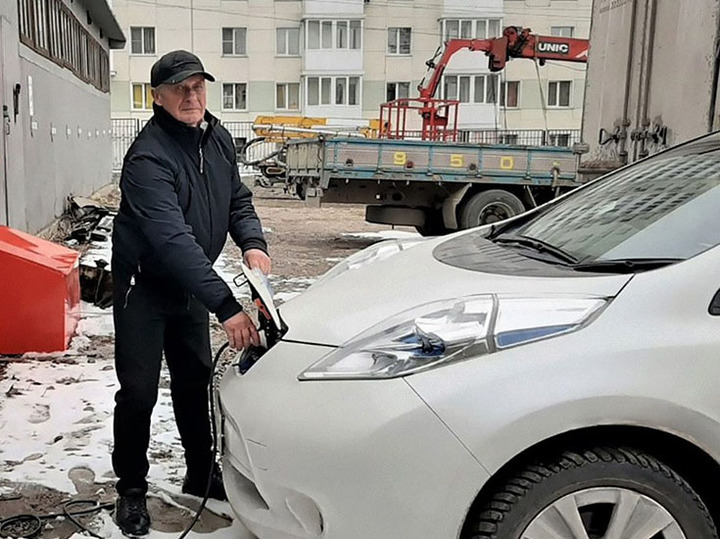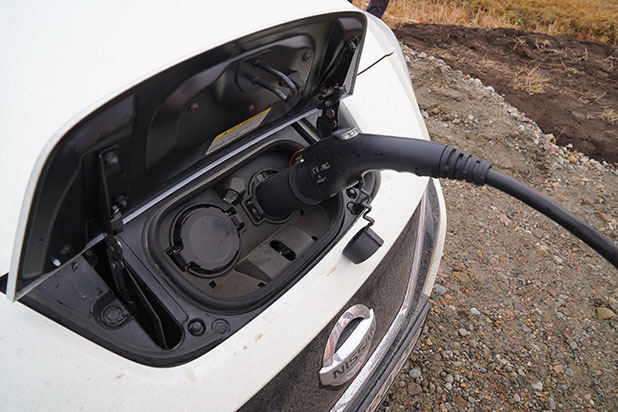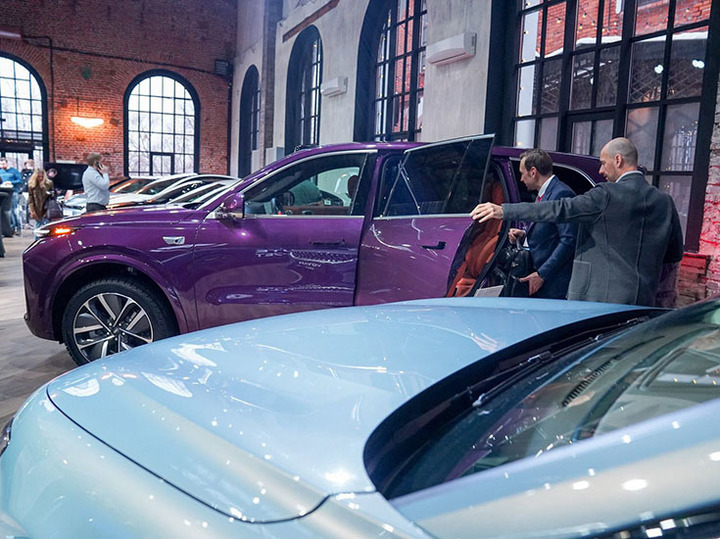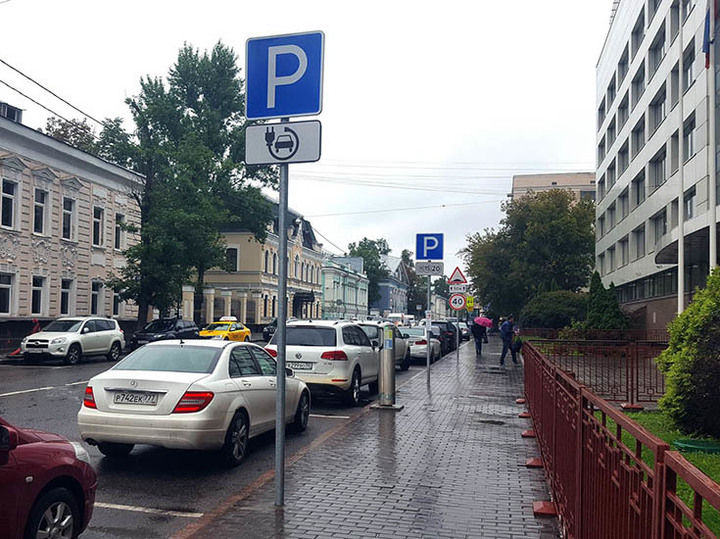Electric cars in Siberia: how eco-transport develops off the coast of Lake Baikal
[ad_1]
A few years ago, talking about the notorious cars with electric motors that are charged from the outlet was something at the level of fantasy. Today, in almost every area of a large city, you can find an electric car, and buses have switched to electricity in megacities. And this is not surprising, because owning an electric car allows you to get a number of significant benefits: no transport tax and parking fees, fuel savings, access to high technologies and, finally, care for the environment. How is the culture of electric transport developing in remote regions of Russia? We understand our material.
Electric boom in the Irkutsk region
Siberia unexpectedly became the most actively developing region in terms of the number of electric vehicles in Russia. The region confidently ranks first in sales of used cars without a gas tank, and every year more and more vehicles of the future appear on the streets of Siberian cities.
Electric transport has gained particular popularity in the Irkutsk region. For example, it was in Irkutsk that the first private car services for servicing electric trains appeared. The craftsmen got the hang of converting foreign electric cars to the needs of the Russians, as well as adapting them to the harsh local climate. The boom in electric transport in the Irkutsk region is due to well-established convenient logistics with its eastern neighbors – a huge number of inexpensive used electric vehicles are brought here from Japan. For example, a Russian car enthusiast can purchase a right-hand drive Nissan Leaf in good condition for 500,000 rubles, including delivery.
Along with the growth in demand and thanks to the support of large businesses, the infrastructure for electric transport is also developing – electric filling stations are growing like mushrooms. The main driver is Oleg Deripaska’s electrometallurgical holding EN+, which recently launched three more new electric filling stations in the Irkutsk region.
In March 2021, Oleg Deripaska reported on social networks about the need to further diversify the economy, as well as the importance of investing in the real sector: “We need to develop infrastructure that meets the challenges – build filling stations for electric vehicles, develop regional air traffic through the development of a network of small airports. We need to use oil revenues as efficiently as possible! Strategic investments will help us increase the mobility of labor resources that are critically needed in the regions of Siberia and the Far East and give a real impetus to domestic tourism, which we talk about so much.”

Prospects for domestic electric vehicles
The growing popularity of electric vehicles prompted the Russian authorities to create domestic cars without gasoline. Just the other day, the launch of mass production of cars was announced at the revived Moskvich plant. In September, the production of electric cars of the Evolute brand began at the Motorinvest plant in Lipetsk. In addition to cars and buses, freight transport has also become electric. A line of electric vehicles Gazelle E-NN has already been presented in Nizhny Novgorod. Electric trains from GAZ are presented in three trim levels: a van, a shuttle bus and a business class minibus.
It is not the first year that they have been developing their own electric cars at the KamAZ plant together with the St. Petersburg Polytechnic University, it is expected that the serial launch will begin in 2024. In the same year, a car with an electric motor E-Neva from the Almaz-Antey military-industrial complex company can see the light.
There are more than enough plans and prospects for the development of domestic electric vehicles. It is important that the authorities do not lose their enthusiasm for supporting the industry and developing infrastructure, especially in remote regions of the country.
Infrastructure is the future
Since December 2020, the En+ Group has been systematically developing a network of its own electric filling stations in the Irkutsk region. In early November, the holding put into operation three more filling stations in the region. New stations were opened in the Novo-Lenino microdistrict of Irkutsk, in the Usolsky and Cheremkhovsky districts. Today, there are already 16 modern En+ Group charging stations in the region.
At the holding’s electric filling stations, you can charge the car through the Type1, CSS, CHAdeMO connectors. Stations can provide fast refueling to two cars at the same time. The time spent on recharging 80% of the battery capacity of the most popular Nissan Leaf electric car in the Irkutsk region is 20 minutes.

All 16 stations are equipped with safe and reliable domestic equipment. To start using electric charging stations, you need to install a special mobile application EV-Time. Since 2020, more than 1,500 customers have used the power plants, charging their cars more than 37,000 times in total. The amount of energy received by electric vehicles has reached 230 thousand kilowatt-hours, such energy is enough to drive 1.4 million kilometers. By the end of 2022, En+ plans to open three more stations – in Bratsk, Tulunsky district and on the territory of Krasnoyarsk airport.
Today, the infrastructure of the Siberian EZS makes it easy to get by electric car from Irkutsk to Olkhon Island. Thus, the first tourist route adapted for electric vehicles began to operate in Russia. Ecology is one of En+’s priorities. The company’s global goal is to achieve a zero balance of emissions into the atmosphere by 2050, and by 2030 it is planned to reduce greenhouse gases by 35%. “Those companies to which I am related have investments in environmental modernization in the billions and trillions,” Oleg Deripaska, the founder of the holding, noted in his statements.

The holding expresses the hope that the Irkutsk region will be included in the list of regions that receive subsidies for the development of EZS. “The development of green technologies is very important for the En+ Group. Thanks to the development of infrastructure, this type of transport in the region continues to gain popularity, especially in the regional capital, where electric cars are becoming more common. We listen to the requests of motorists and continue to open new complexes in the most popular places in the region. We hope that the Irkutsk Region will be included in the list of regions receiving subsidies for the development of a network of charging stations from 2023,” said Mikhail Khardikov, head of the energy business at En+ Group.
Energy with a plus sign
What are the benefits of owning an electric car? First, cars without an internal combustion engine are much more practical and easier to maintain. In addition to changing technical fluids and brake pads every 50,000 km, the car practically does not need service. The most important expense item can be the battery, which eventually sags in the amount of charge and may need to be replaced. But our craftsmen can already easily solve this problem – installing new batteries with a large volume will add an additional power reserve to the car and extend its service life.
Secondly, electric vehicles are much cheaper to charge than conventional internal combustion engine cars to fill with gasoline. For example, in the Irkutsk region, one of the cheapest electricity tariffs for the population. Residents of cities pay less than 1.5 rubles for one kW of electricity, and citizens living in rural areas pay even less. The average consumption of electricity for the use of cars is 10 kW per 100 kilometers. Replenishment of energy at electric filling stations costs an average of 15 rubles per kW. It turns out that in order to drive 100 km, the car owner needs to pay 150 rubles, which is much more pleasant than the cost of petroleum products at traditional Russian gas stations.

Thirdly, they actively encourage Russians to buy electric vehicles with tax breaks and other discounts. So, in 20 regions of our country, the transport tax for electric vehicles has been canceled, several regions offer owners of electric trains tax breaks when importing a car and clearing it through customs. And, for example, in Moscow, St. Petersburg and Novorossiysk, free parking spaces are organized for owners of electric vehicles. The number of free charging stations is also actively growing in the capital: according to the forecasts of the authorities, there will be about 600 of them by 2023. In addition, it is planned to make toll roads free for the passage of electric vehicles, and a section of the M-11 highway is being prepared for such an innovation.
In general, for citizens, electric vehicles are becoming an increasingly obvious choice. More than 600,000 electric vehicles are predicted to be driving on Russian roads by 2030, although with the support of the authorities and the development of appropriate infrastructure throughout the country, this figure could be even higher.
[ad_2]
Source link






